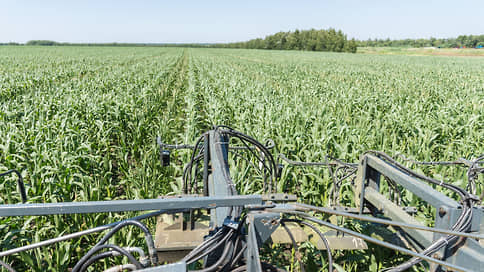The government approved plans for the production of “organic” food in Russia
[ad_1]

The government approved the Strategy for the development of organic production until 2030. Among the main goals outlined in the document is the development of the domestic market for such products and the increase in their exports. So far, it is difficult to seriously talk about the production of organic agricultural products as a new branch of the agro-industrial complex: its share in the food market in Russia (as well as in the world) is less than a percent. The rapid development expected by the authorities is still hampered by a number of problems: from a lack of qualified personnel to the uncertainty of issues of mutual recognition of certificates of conformity with leading importers of organic products.
Yesterday, at a meeting with deputy prime ministers, Mikhail Mishustin presented the Strategy for the Development of Organic Production until 2030, developed by the Ministry of Agriculture. Now, the head of government emphasized, food products that do not use mineral fertilizers and chemicals are produced in the Russian Federation in 47 regions, production is growing by 8-10% per year, but so far the share of Russian products in the domestic market of organic products is less than half ( about 37%) of the total volume, and in general in the food market of Russia – 0.13% (on the world share of “organic” food – 0.2%).
By order No. 1788-r of July 4, 2023, approving the strategy, the authorities set targets for the development of organic production. It is expected that over the next six and a half years its volume for the domestic market will grow to 114.5 billion rubles. (in 2021 – 9.1 billion rubles). In this case, the annual increase in production should reach 20.7%. The strategy outlines a target for the area of land on which organic farming technologies are going to be applied – 4.2 million hectares (in 2021 – 656 thousand hectares). For these purposes, the strategy is linked to the state program for involving agricultural land in circulation (see Kommersant of February 8).
In terms of money, production should increase from 3.7 billion rubles. in 2021 to 27.8 billion rubles. in 2030. The Ministry of Agriculture sees China as a priority market – it is assumed that Russian farmers will supply corn, soybeans and pine nuts there. Deliveries of other goods with “great export potential” – barley, frozen berries, honey and nuts – are planned to be established in the countries of the Persian Gulf, Southeast Asia and neighboring countries, but this requires mutual recognition of “organic” certificates. It should be noted that other states remain the key markets for such products in the world – the USA, the EU countries, Australia and Canada. So far, Russian exports to some of them remain, but among the potential risks, the strategy mentions the possible cancellation by these countries of foreign certificates of conformity, which will restrict the import of Russian products even without a formal import ban.
As Mikhail Mishustin emphasized, in order to develop a new industry, farmers need additional support measures – assistance in terms of subsidies for certification, leasing of agricultural equipment and rental of premises has already been deployed in the Belgorod, Voronezh and Tomsk regions, now it will have to be extended to other regions: due to higher costs, organic producers cannot compete with traditional producers, and special credit products must be provided to them.
To achieve the declared indicators, the text of the document says, the industry lacks qualified personnel: specialists in the field of production, certification, marketing and export. Given the continuing shortage of personnel in the agro-industrial complex (see Kommersant of March 27), the government expects not to find on the market, but to “grow up” competent farmers, including through retraining and advanced training programs.
It should be noted that the government’s interest in creating a new agro-industrial complex is associated with the success of the sector (see “Kommersant” dated July 4) and the reorientation to work on its systemic, rather than project-based growth: for example, the “organic” strategy is linked to all key agricultural state programs and national projects.
[ad_2]
Source link






